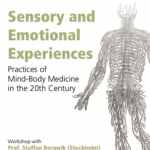Peter Hess, Department of Germanic Studies, University of Texas at Austin (Web)
Proposals by: 15.10.2020
Articles are sought that investigate efforts and strategies by German cities, territorial states, and individual writers to manage pandemics in the Early Modern period and to assist individuals with ethical, theological, and social issues.
The advent of plague in Europe in 1348 was a cataclysmic event that caught most cities and territories off guard as a pandemic of this magnitude had not occurred in Europe since the Plague of Justinian in late Antiquity. The opening pages of Boccaccio’s Decameron painted chaotic scenes of Florence after the arrival of plague. North of the Alps, panic and fear lead to numerous pogroms directed against Jews as well as to processions of flagellants. By the early fifteenth century, the plague had become a disease that recurred periodically, sometimes after only ten to twelve years. In the 1490s, a new illness, the French disease or syphilis, spread throughout Europe. Furthermore, older diseases, like cholera, smallpox, typhoid, and leprosy, were circulating in early modern Europe as well.
As a result, the plague and its effects as a recurring disease had to be reassessed, and communities gradually learned ways to protect themselves. Cities and territories, first in Italy but soon north of the Alps as well, began to develop strategies to contain waves of plague and to prevent future outbreaks. The invention of the printing press around 1450 led to a proliferation of plague texts that were mostly written by physicians and theologians. Many of them were sponsored or at least supported by communal governments, and some were widely disseminated in their cities as semi-official documents. Read more and source … (Web)

